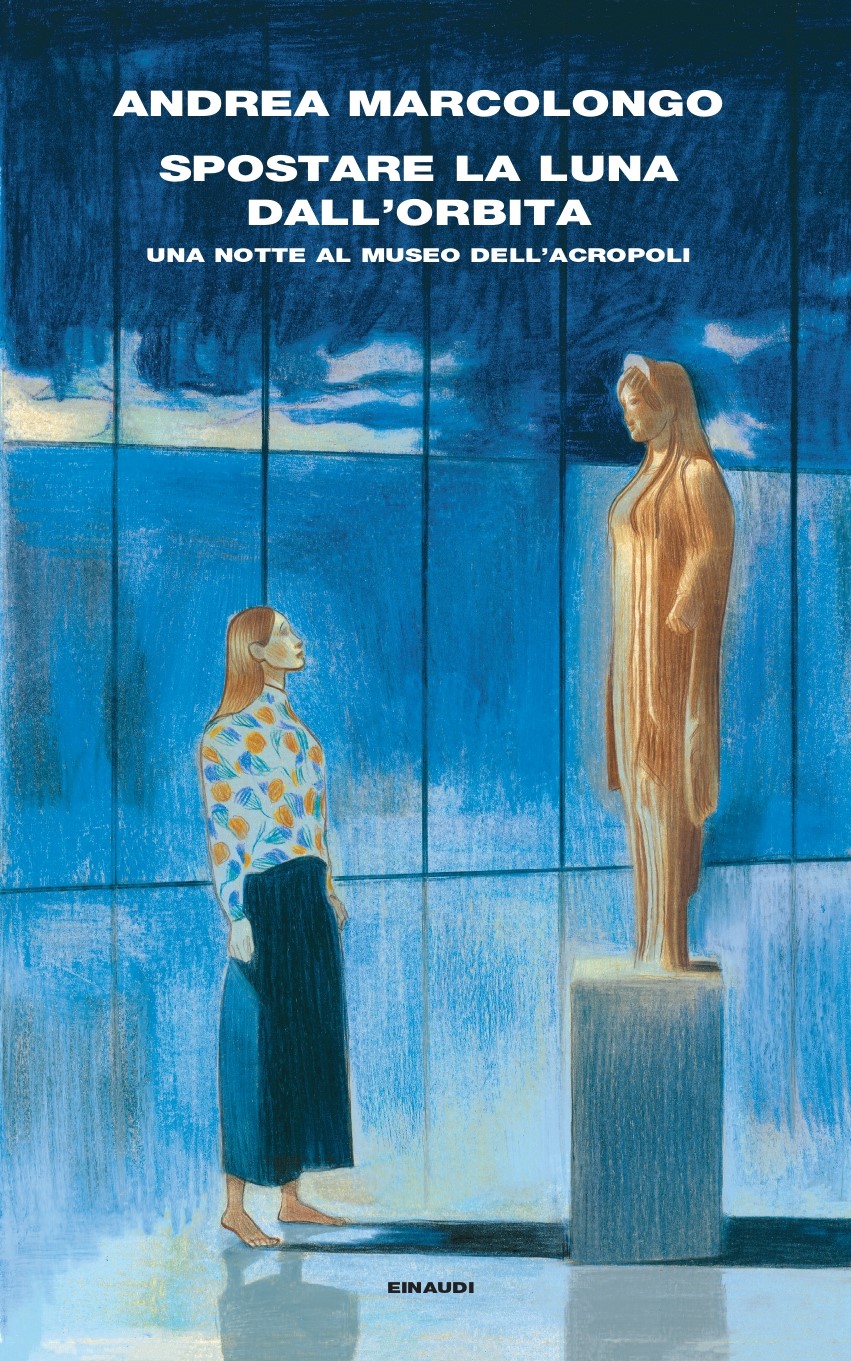Author:
Andrea Marcolongo
Publishing house:
Einaudi
Date of publication:
16-05-2023
In the last week of May, at a store in Paris specializing in mountaineering supplies, Andrea Marcolongo bought a camp bed, a sleeping bag and a flashlight. The next evening he opened his camp bed and spread his sleeping bag not on top of a mountain peak, but in the deserted hall of one of the world’s most important museums. The light of the flashlight then mingled with that of the moon running over the marbles of the hall, carved by Phidias in the glorious century of Pericles, over presences and especially absences. We are in Athens, at the Acropolis Museum, where Marcolongo has the opportunity to spend a night in complete solitude. But it is hard to be truly alone when you are surrounded by the Parthenon marbles and your own thoughts.
Night is the time for ghosts and budgets. Two are the shadows that come to visit Marcolongo’s thoughts. That of Lord Elgin: the British ambassador who perpetrated the theft of the Parthenon marbles in the early 1800s by deporting them to London locked in wooden crates. And that of a recently deceased man born in a humble town in the Veneto province that claims to be the center of the world: Andrea’s father.
Elgin’s story is as unpredictable and tragic as an adventure novel. Elgin, who at first did not even suspect what the Parthenon and the Acropolis represented, would see his life destroyed by the consequences of that arrogant and foolish act, forever stricken by “Minerva’s curse”: “Who knows if the ruins he contemplated in silence were those of at least once that had been worth it anyway.”
But the voids in the museum rooms, the white plaster spaces left by marbles stolen two centuries ago, resonate with the voids of which we are composed: With regret and shame, that of only now understanding the thread that bound us to a parent we felt distant and from whom we wanted to emancipate ourselves; with fragility and inadequacy, that of never feeling equal to what one has achieved, of always feeling like an impostor, a thief; with material theft and cultural appropriation, those we make to the detriment of the classical world: “Eternity is not made of marble like the work of Phidias, I reflect, rather it is contained in each of the moments that pass: it is enough to be distracted for a moment, to stop guarding it, and forever it will be lost.”
In this intense and courageous book, Andrea Marcolongo reminds us that we all owe someone for who we are. May we all have someone to say: thank you.

